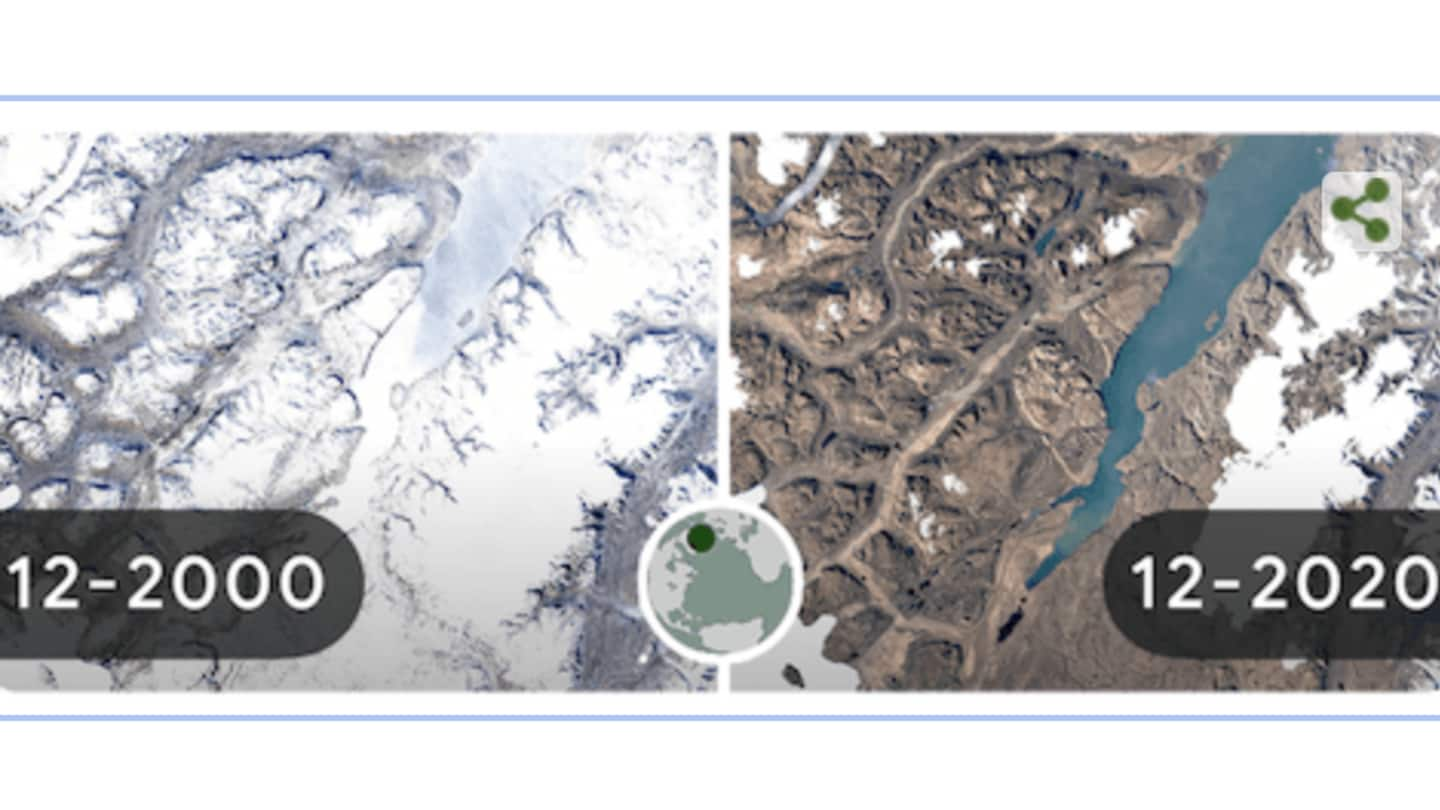
Earth Day Google Doodle: Scary timelapse shows climate change fallout
What's the story
April 22 is celebrated as Earth Day across the globe.
Like every other important day, Google shared a doodle. However, this time it's not a pretty or cute thing, but a rather concerning set of images.
To address climate change, it has shared real time-lapse imagery from Google Earth Timelapse and other sources, showing the impact of climate change in four different places.
#1
Glacier retreat
The doodle will change throughout the day, with each of the timelapse staying for several hours on the homepage at a time.
The first timelapse shows how the glacier has retreated at Mt. Kilimanjaro, Tanzania over a period of 34 years.
The second timelapse shows the rather frightening glacier retreat in Sermersooq, Greenland in mere 20 years, from 2000 to 2020.
#2
Impact of climate change
The third imagery shows coral bleaching on Lizard Island in Great Barrier Reef, Australia in just three months!
Germany's Harz Forests in Elend are shown in the fourth timelapse destroyed by bark beetle infestation owing to rising global temperatures and drought.
These scary images show that the climate change impacts we so dread are already happening, and happening fast.
#3
Google Doodle reminds of the importance of saving the environment
The doodle again reminds us that our everyday lives should be focused on adopting environment-friendly ways to survive in order to preserve the planet's natural resources, flora and fauna, and save ourselves from eventual doom.
We must act before it's too late and all the melting glaciers across the globe wash away coastal cities and towns, or the soil rots completely leading to droughts.
#4
Time to make amends
This year marks the 52nd anniversary of the annual celebrations of Earth Day.
Warmer temperatures are changing weather patterns and disrupting the balance of nature. This poses risks to all life forms.
Like environmentalists and well-wishers of the planet are on a mission to make amends, let us join in as well with our own individual efforts. Only then can we experience real change.